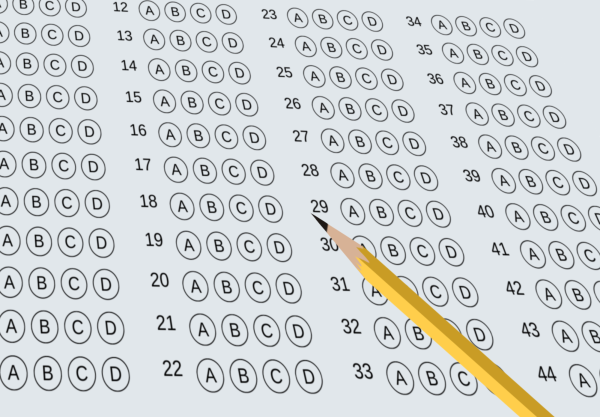Suicide jokes are insensitive, not funny
Despite teen mental health problems increasing at an alarming rate, suicide, and mental health is still joked about.
May 7, 2023
In recent years, mental health and suicide have become incredibly destigmatized. The once “don’t talk about it and it won’t happen” topic was previously shunned from conversations, however, now the opposite is true. Talk about mental health is encouraged and normalized, but with this change, desensitization of it is also on the rise.
Phrases such as “I’m going to kill myself,” or “I’m so depressed” are carelessly thrown around by many teenagers in response to common annoyances. Typically, these phrases are taken very seriously; however it’s recently become so normalized among teenagers that when said, many just laugh and agree.
In reality, suicide and mental health problems aren’t a joke. According to the Centers for Disease Control, teenage mental health problems are rising at an alarming rate, especially for teenage girls and minorities. In 2021, 57% of girls were reported to feel persistently sad or hopeless, a 60% increase from 2011. Even more concerning, one out of three teenage girls seriously consider attempting suicide.
So why joke about it?
Suicide is unbelievably tragic, and it leaves dark stains on those it’s touched, often affecting them for their entire lives. For someone to want to die, they have to be in unimaginable pain; completely hopeless and alone in their struggles. Does that intense pain and suffering amount to a few inconveniences, such as annoying homework or a bad test grade? It doesn’t.
It may seem funny for students to say they’d rather jump out a window than go to class or get hit by a car before they have to go work, but these statements aren’t just a joke. Humorizing suicide is not only insensitive to the tens of thousands of people that kill themselves per year and their devasted family and friends, but it can make actually suicidal people less inclined to speak up about their mental health problems. If suicide is joked about, chances are some people will treat suicide as a joke and not as the serious problem it is.
Suicide is a complex topic, but typically, people do not actually want to die. They do, however, want to end their intense emotional pain and don’t always have the resources to do so. This pain can be so influential and tormenting that their decision-making skills and rationality is severely limited, causing suicide to appear to be the best option.
In a quick life or death scenario, when people aren’t thinking rationally, help can go a long way and death can be prevented. However, this will only happen if suicide and talk of it is treated very seriously. When a mass amount of students joke about killing themselves, it can be harder to know who is joking and who is genuinely suicidal. In a generation where mental health problems are rampant and growing every year, these jokes can be extremely dangerous. Is it dark humor or a call for help? Suicide jokes will not help answer questions.
Discussions on mental health is necessary, and it’s amazing that talk of suicide is no longer a taboo. However, what is happening now is the opposite extreme. Students are joking about a horribly sad topic and normalizing suicide when it should never be normalized. In 2021, one person died from suicide every 11 minutes in the U.S. Next time students make a joke about suicide, they need to think about the implications of their statements. Is saying you’re going to kill yourself over homework really funny?














Alex • May 19, 2023 at 4:25 pm
I totally agree with this entire post. I’ve been struggling with suicidal thoughts before, and I believe I’ve been influenced by edgy, toxic “comedy” videos online. I don’t care if I’m seen as “the one who can’t take a joke”, and I don’t really see how people enjoy this sort of toxic humor. My advice might not work for everyone, but it’s always important to identify your triggers and you shouldn’t be ashamed of it. You are trying to help yourself, so make sure to commemorate your efforts.
Nonie Sanders • May 27, 2023 at 10:13 am
So this happened: My friend hates a particular class and wrote a couple of really depressing thoughts about how he’d rather die than spend another minute in the class on the back of a test paper. He put his head down on the desk, basically covering the paper. But something caught the teacher’s eye and she grabbed the paper, read it and ordered my friend out of the class. The principal called his mom, and the police. My friend is transgender, every body at school knows that and it is supposed to be a really progressive school. Still, the police showed up with female police because they were told they were dealing with a ‘suicidal girl’. He was hauled to a mental health clinic where they were horrible to him, but eventually sent him back to school. The teacher who started all the trouble decided she was in fear for her life, locked herself in her car and refused to come back to the building. Now my fiend cannot finish the end if the school year, and has been humiliated and abused by the system that is supposed to be protecting him. All because he dared to express what a lot of us are feeling every day. This kid is the most easy going friendly guy you ever want to meet. He is in sitting there in tears and the teacher is afraid of him?? He is already in counseling and this experience has crushed him. So if we joke about wanting to die, we should be prepared to be hauled off, abused and humiliated. We apparently won’t be met with hugs and reassurance that some classes (and life experiences) suck but we just have to grind through them.